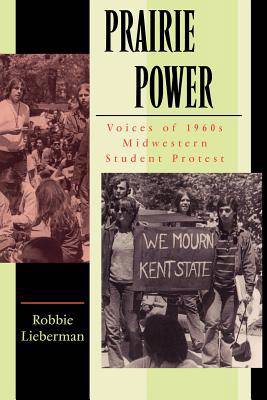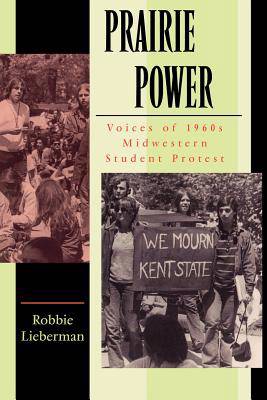
- Afhalen na 1 uur in een winkel met voorraad
- Gratis thuislevering in België vanaf € 30
- Ruim aanbod met 7 miljoen producten
- Afhalen na 1 uur in een winkel met voorraad
- Gratis thuislevering in België vanaf € 30
- Ruim aanbod met 7 miljoen producten
Omschrijving
originally published by University of Missouri (May 2004)
Prairie Power is a superb collection of oral histories from the 1960s focused on former student radicals at the University of Missouri, the University of Kansas, and Southern Illinois University. Robbie Lieberman presents a view of Midwestern New Left activists that has been neglected in previous studies.
Scholarship on the sixties has shifted in recent years from a national focus to more localand regional studies, but few authors have studied the student movement in the Midwest. Lieberman brings a fresh interpretation to this subject, challenging the characterization of prairie power activists as long haired, dope smoking anarchists who were responsible for the downfall of Students for a Democratic Society (SDS). She argues that Midwestern students made significant contributions to the New Left and that their efforts were important not only in the 1960s but also had a lasting impact on the universities and towns in which they were active.
The oral histories come from national leaders of SDS, homegrown Midwestern activists who were local leaders on their campuses, and grassroots activists who did not necessarily identify with either local or national organizations. Providing new insight into who participated in student protest and why, Prairie Power makes a significant contribution toward a more comprehensive history of the 1960s.
Specificaties
Betrokkenen
- Auteur(s):
- Uitgeverij:
Inhoud
- Aantal bladzijden:
- 284
- Taal:
- Engels
Eigenschappen
- Productcode (EAN):
- 9781617350566
- Verschijningsdatum:
- 20/05/2010
- Uitvoering:
- Paperback
- Formaat:
- Trade paperback (VS)
- Afmetingen:
- 156 mm x 234 mm
- Gewicht:
- 399 g

Alleen bij Standaard Boekhandel
Beoordelingen
We publiceren alleen reviews die voldoen aan de voorwaarden voor reviews. Bekijk onze voorwaarden voor reviews.









